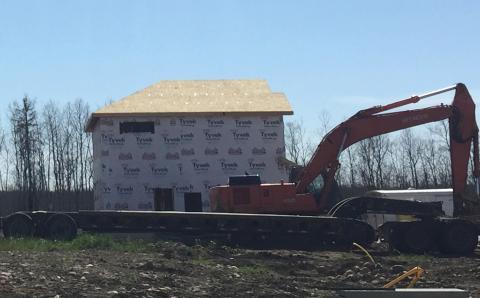While the memories of my high school and college years become more blurred as the years go by, I’m amazed at the things I recall clearly. One such event occurred while I was in college and formed and deepened my faith. The Christian Reformed Church focused our attention on world hunger that year, calling for us to set aside the first Sunday in November as a day of prayer and fasting.
That was the very first time I attempted to fast. Fasting is not a spiritual discipline that was practiced widely in the CRC then, and the call to fasting grabbed my attention in two ways. First, it awakened me to the hunger people face daily across the world. Second, it taught me that my faith requires me to look out for the good of my neighbor.
Synod 2017 reached back to that report from 1978 and a handful of others as it called us to the same kind of faithful response to today’s humanitarian challenges. Sadly, the world’s needs seem to be growing ever more complicated and the potential results more dire. It’s time to redouble our efforts and to once again commit to prayer and fasting.
This action by Synod 2017 leads me to a second and very different observation. We have an interesting way of being the church. Authority begins with the local council; when all of those councils and congregations are knitted together to speak from the Holy Spirit’s leading at synod, our denomination is able to address broad issues impacting all of us and God’s entire world.
So how did this proposal about recommitting ourselves to prayer and fasting in the face of global humanitarian needs come to be? It started with the Board of Trustees (BOT) of the CRCNA. They asked staff from a number of agencies and ministries to develop a proposal for synod. These staff had been working under the auspices of a number of different boards, but Synod 2017 completed the process of transitioning governance from four separate boards into a single Council of Delegates.
These changes actually began at Synod 2015, when synod approved the formation of a Council of Delegates “to take the place of the current Board of Trustees of the CRCNA and the boards of C.R. Home Missions, C.R. World Missions, and Back to God Ministries International,” mandating that this transition be completed by Synod 2018 or sooner. As it turns out, it took just two years, not three, to make the plans and adjustments necessary for this change.
Synod 2015 based its decision on a report from the Task Force Reviewing Structure and Culture. What Synod 2017 approved is fairly close to what the Task Force suggested. For instance, there is one delegate from each of the 48 classes. The Council of Delegates will have committees focusing on various aspects of our ministries to do the work while relying on the form of governance the Task Force suggested.
The Council of Delegates will focus on setting clear policies and direction while administration is carried out by denominational staff. The Council sets the course, in other words, and the administration sails the ship.
I believe the new Council of Delegates will lead, with God’s blessing, to better integration and effectiveness in our wide-ranging ministry efforts both in North America and around the world. Instead of four separate voices deciding on policy and issuing direction, there will be one voice—a voice that represents all of us, connects all of us and, with the Spirit’s leading, charts a common purpose and direction for the CRC. That will help us to be the church that God is calling us to be and maximize the impact of our ministry efforts throughout God’s world.
About the Author
Steven Timmermans served as the executive director of the Christian Reformed Church in North America from 2014 to 2020.
Steven Timmermans se desempeñó como director ejecutivo de la Iglesia Cristiana Reformada en América del Norte de 2014 a 2020.
Steven Timmermans는 2014 년부터 2020 년까지 북미에서 기독교 개혁 교회의 집행 이사로 재직했습니다.









